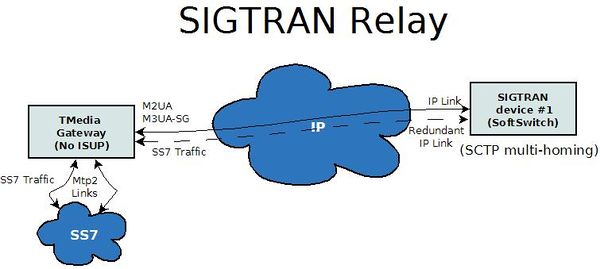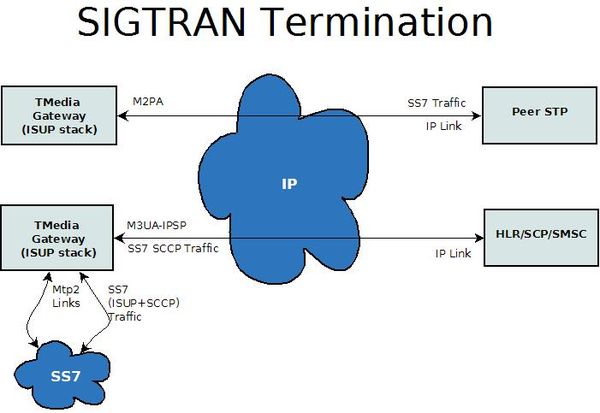SIGTRAN pricing model 2011
From TBwiki
(Difference between revisions)
| Line 5: | Line 5: | ||
[[Image:Sigtran_Relay.jpeg|600px]] | [[Image:Sigtran_Relay.jpeg|600px]] | ||
| − | + | SIGTRAN is used to RELAY SS7 signaling to the peer using either M2UA or M3UA-SG, without local processing of SS7 messages. | |
<br /> | <br /> | ||
Latest revision as of 08:59, 3 August 2012
Pricing for TelcoBridges' implementation of SIGTRAN is based on the concept of SS7 relay and termination.
The relay concept is where the SS7 signaling received from MTP2 links is forwarded directly to SIGTRAN peer(s).
SIGTRAN is used to RELAY SS7 signaling to the peer using either M2UA or M3UA-SG, without local processing of SS7 messages.
A termination corresponds to a link between two unique end-points. An example is provided below.
The SIGTRAN termination is used to receive SS7 signaling on the gateway for local processing (ISUP,SCCP,MTP3 routing).
Other details
- The SIGTRAN Relay software license enables: 64 M2UA links, up to 20 M3UA-SG links and 64 IUA links. (SS7 links must be purchased separately)
- The SIGTRAN Termination software license enables: 64 M2PA links and up to 20 M3UA-IPSP links.
- The SIGTRAN pricing model does not feature any restrictions on the number of messages or transactions per second. Users are only limited in their use of SIGTRAN by the capacity of the underlying IP link and the telecommunications hardware used in the system. Increasing the capacity of the IP link or the hardware will enable the user to achieve higher message counts per second without requiring additional SIGTRAN associations.

